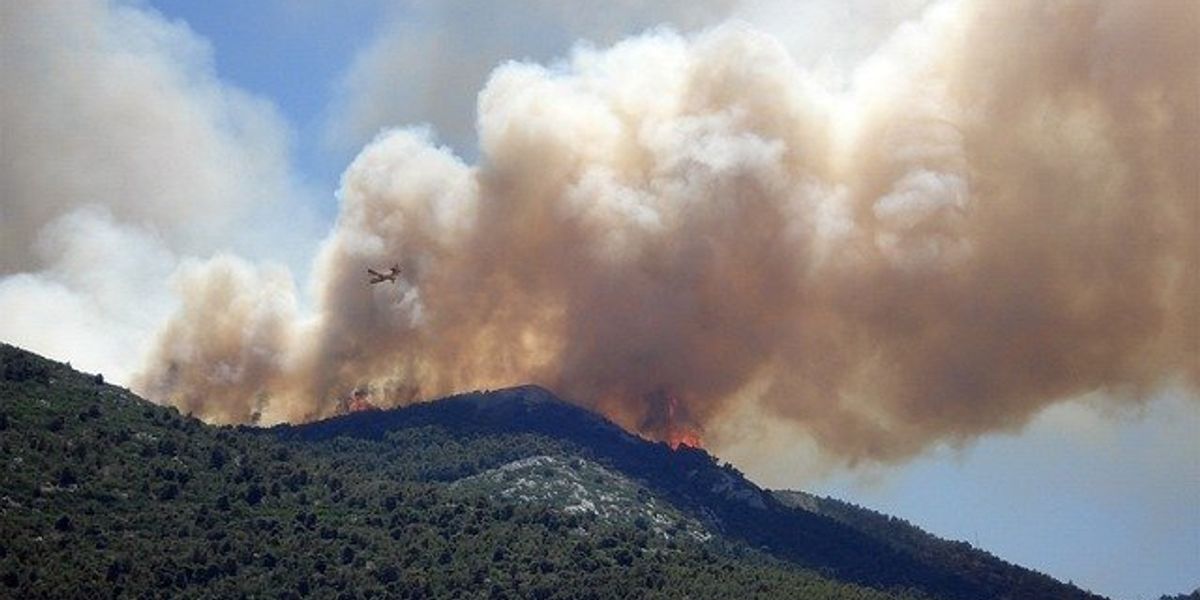ecuador
Ecuador’s forest win sets global precedent for nature’s legal rights
The Los Cedros forest in Ecuador’s Andes has become a global symbol of how granting nature legal rights can protect biodiversity from industrial threats like mining.
In short:
- The Los Cedros forest, one of the world’s most biodiverse places, was saved from mining by a landmark court ruling that recognized nature’s legal rights.
- The ruling builds on Ecuador’s 2008 constitution, which grants nature rights, setting a precedent for protecting ecosystems worldwide.
- Challenges remain in implementing these protections, with concerns about illegal activities and nearby industrial threats.
Key quote:
“There was no case before this, there was no precedent. It was a case of science winning over extractive industries.”
— Josef DeCoux, conservationist
Why this matters:
This ruling is part of a global movement to give legal rights to nature, offering new tools to protect ecosystems essential to human health and survival, especially in the face of biodiversity loss and climate change. Read more: Could the Ohio River have rights? A movement to grant rights to the environment tests the power of local control.
Mining will remain dominant in the Pan Amazon for decades
Governments in Brazil, Peru and Ecuador are increasingly dependent on extractive industries like mining to support local economies, despite growing opposition from environmentalists and social advocates.
In short:
- The Pan Amazon region relies heavily on mining, especially in areas like Brazil's Carajás Mining District, where the industry dominates local economies.
- Regulatory challenges include balancing corporate interests with the rights of Indigenous communities through Free, Prior and Informed Consent (FPIC).
- Environmental, Social and Governance (ESG) standards are shaping the future of mining, but enforcement remains uneven across public and private companies.
Key quote:
“The full impact of FPIC on the regulatory process is still unfolding.”
— Timothy J. Killeen, author
Why this matters:
Mining's expansion threatens ecosystems and Indigenous rights. Long-term economic dependence on these industries complicates efforts to regulate environmental and social impacts, posing risks for the region's future sustainability.
Ecuador faces challenge in ending oil extraction in national park
Ecuador's struggle to honor a referendum demanding an end to oil drilling in Yasuní national park highlights deep economic divisions.
In short:
- The Indigenous Quichua community in Yasuní celebrates the referendum result but faces internal conflict over the economic impact.
- President Noboa has proposed a moratorium on the referendum result, citing severe economic repercussions.
- Oil remains crucial to Ecuador's economy, accounting for nearly one-third of the GDP, and its cessation could exacerbate the fiscal crisis.
Key quote:
“The government has forgotten about these people. And it is the oil and service companies that take on this responsibility.”
— Ramiro Páez Rivera, executive with Petrolia Ecuador
Why this matters:
Yasuní National Park is home to countless species and indigenous communities who have lived there for centuries. Ending oil drilling in the park is a significant step toward protecting these invaluable natural and cultural resources.
Ecuador's nature rights movement faces new challenges amid energy shifts
Fifteen years after Ecuador recognized the constitutional rights of nature, environmental advocate Natalia Greene discusses the ongoing challenges and landmark court victories defending these rights.
In short:
- Ecuador leads globally in nature's rights jurisprudence, influenced by landmark cases like the successful defense of the longnose harlequin frog against mining interests.
- The Constitutional Court has revoked several mining licenses, asserting nature's legal rights, which includes numerous species and ecosystems.
- The nation grapples with illegal mining and drug trafficking that threaten both the environment and local communities.
Key quote:
“We now have a whole generation of young people who have grown up only knowing that nature has rights. The law has influenced peoples’ understanding of nature and that is very powerful.”
— Natalia Greene, judge at the International Rights of Nature Tribunal
Why this matters:
This judicial approach in Ecuador, where ecosystems and species have legally enforceable rights, is reshaping the dialogue around environmental protection. It challenges traditional views that prioritize economic gain over ecological health, and sets a precedent for how nature's rights can be enforced legally. Such jurisprudence provides a robust framework for protecting biodiversity while emphasizing the intrinsic value of nature, independent of its utility to humans.
Ecuador's Indigenous communities face pollution's heavy toll
In Ecuador, the Indigenous communities confront a grim reality as pollution and illness shadow their lives.
In short:
- Indigenous communities in Ecuador suffer from environmental pollution and health issues due to decades of oil exploitation by companies like Texaco, now Chevron.
- The pollution has led to a rise in cancers and other diseases among the local population, with legal battles against Chevron yielding little relief.
- Despite Chevron's claims of remediation, the affected communities continue to face severe environmental and health crises, with limited support from the Ecuadorian government.
Key quote:
"In a'ingae, my native language, the words oil, contamination, and cancer did not exist until Texaco arrived on our lands."
— Don Arturo, elder of the A'i Kofán Siangoé community
Why this matters:
Legal actions launched against oil companies and state agencies have aimed to address violations of constitutional rights to clean water, health, food, and nature. However, the process has been slow, and communities have expressed frustration with the lack of accountability and support from the state and the companies involved.
Be sure to listen to Dr. Carlos Gould on the Agents of Change in Environmental Justice podcast, discussing global energy poverty and indoor air pollution.
Indigenous communities in Ecuador battle oil industry's environmental threats
In Ecuador's Amazon, the Indigenous A’i Cofán people are confronting the state-owned oil company, Petroecuador, to protect their land from oil exploitation, challenging decades of conservation efforts.
In short:
- The A’i Cofán community in the Ecuadorian Amazon is resisting oil drilling by Petroecuador, which threatens their environment and way of life.
- Despite previous conservation successes, new oil wells and spills are causing significant ecological damage and social conflict.
- The conflict highlights the struggle between Indigenous rights, environmental conservation, and state-backed resource extraction.
Key quote:
"We continue to fight and resist, but the leaders must be vigilant, and we need to defend ourselves."
— Albeiro Mendúa, Leader in the A’i Cofán Community
Why this matters:
The clash in Ecuador underscores the global challenge of balancing resource extraction with environmental conservation and Indigenous rights. It raises questions about the effectiveness of conservation programs when faced with lucrative oil interests. How can we support Indigenous communities in their fight to protect the environment while addressing the world's energy needs?
Be sure to check out EHN's piece: Why Indigenous women are risking arrest to fight Enbridge’s Line 3 pipeline through Minnesota



















